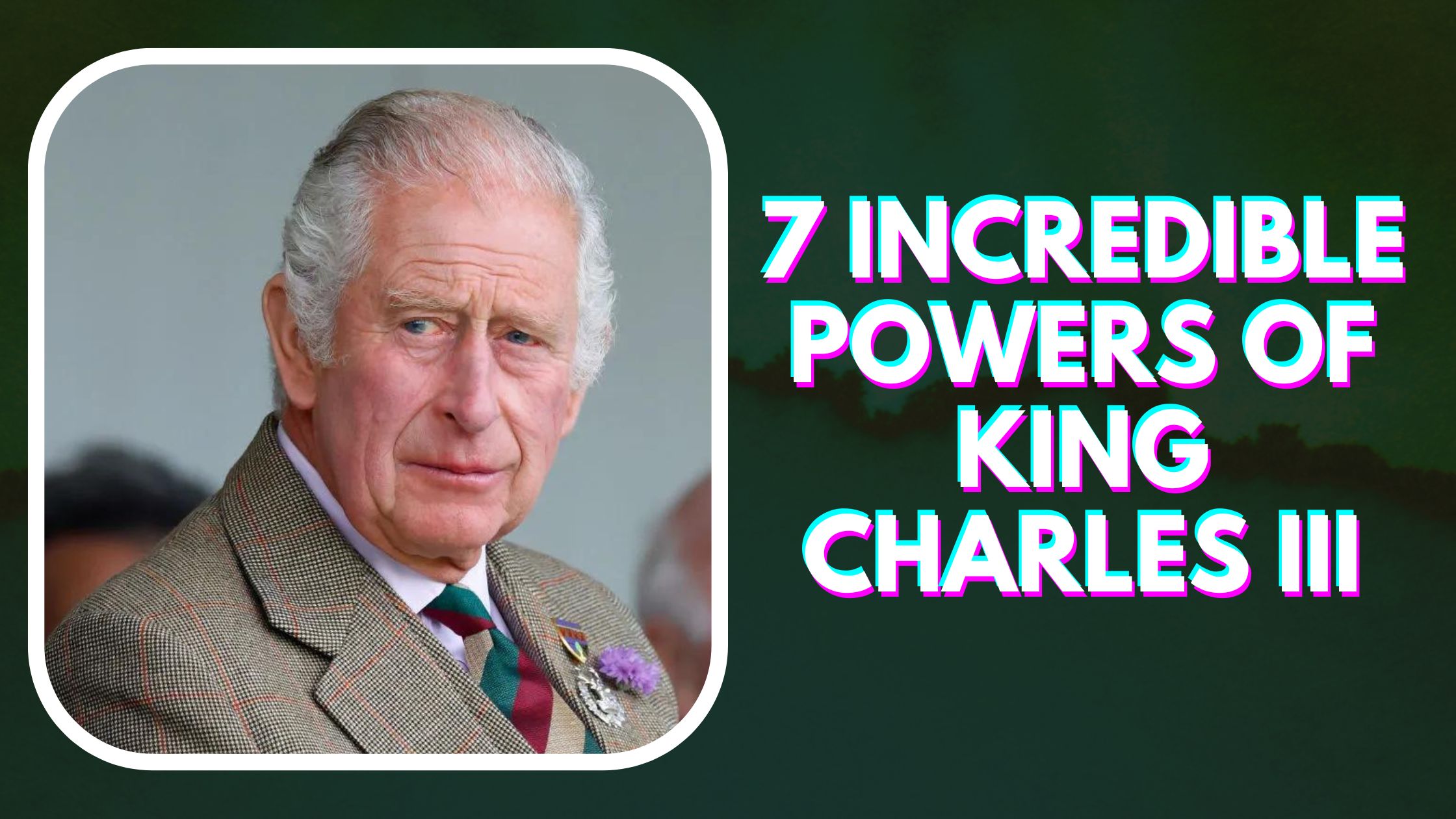Trends
7 Incredible Powers Of King Charles III, The New King of The United Kingdom.
The British Monarchy merely plays a symbolic role but here are 7 incredible powers of King Charles III, the new King of the United Kingdom.

King Charles III is the new King of the United Kingdom and 14 other Commonwealth realms. He acceded to the throne on 8 September 2022 upon the death of his mother, Elizabeth II. He was the longest-serving heir apparent in British history and, at age 73, the oldest person to assume the throne.
King Charles prior to his ascension to the throne is known as a public figure with strong opinions. With this in mind have begun to question how powerful the new King of the United Kingdom is. Before delving into that, it is imperative to discuss the system and history of monarchy in the United Kingdom.
Monarchy of the United Kingdom
A monarchical system of government is a political system in which supreme authority is vested in the monarch, an individual ruler who functions as head of state. There are however two types of monarchies: constitutional and absolute. Constitutional monarchies limit the monarch’s power as outlined in a constitution, while absolute monarchies give a monarch unlimited power.
It is imperative to note that the United Kingdom operates a constitutional monarchical system of government, that is the ability to make and pass legislation belongs to Parliament rather than the King. The Monarchy merely plays a symbolic role in government, undertaking various official, ceremonial, diplomatic, and representational duties.
As such, King Charles III’s formal duties are largely representational, such as embarking on goodwill visits abroad and hosting foreign heads of state. The monarch’s main role is to serve as a vital part of Britain’s “national identity, unity, and pride”, says the official royal website.
However, the monarchy still has a few legal privileges and powers reserved for the King alone. Without any further ado, here are 7 incredible powers of King Charles III, the new King of the United Kingdom.
1. Royal Assent
One of the powers reserved for King Charles III, the new King of the United Kingdom is the Royal Assent. When the government passes a bill, it cannot become an Act of Parliament until it receives the King’s stamp of approval, a process called Royal Assent. In reality, though, no monarch has refused to give Royal Assent since 1708, when Queen Anne did so only at the behest of ministers.
2. Setting Up The Parliament
One of the incredible powers reserved for King Charles III is the ability to set up, the British parliament. After a general election, the monarch invites the leader of the party that won the most seats in the House of Commons to become prime minister and form a government. He also formally opens the Parliament every year.
3. No Passports Documents
Unlike other members of the royal family that still need to have UK passports, the King doesn’t need one herself because all U.K. passports are issued in the King’s Name. This privilege travels with her all around the world because issuing her a passport in her own name is too obvious.
4. No Tax payment
Like many monarchical systems across the globe, the British royal family is exempted from paying taxes. According to the Sovereign Grant Act 2011, “the Monarch is not legally liable to pay income tax, capital gains tax, or inheritance tax because the relevant enactments do not apply to the Crown.”
5. No Driving License
The King of England is the only person in the UK and probably the entire world who can legally drive without a license. He doesn’t even need a license plate or a number plate. Just like UK passports document, Driving licenses are issued in the King’s name, making him the only person in the United Kingdom who doesn’t legally need a license to drive or a number plate on his car.
6. Legal Immunity
One of the incredible power possessed by King Charles of the United Kingdom is Legal Immunity, that is he is immune from prosecution and cannot be compelled to give evidence in court. This is because all prosecutions are carried out in the name of the King, and it is theoretically believed that the King “is incapable of thinking or doing wrong. According to the Royal website, Although civil and criminal proceedings cannot be taken against the King under UK law, the King is careful to ensure that all his activities in a personal capacity are carried out in strict accordance with the law.
7. Ability to fire the entire Australian government
King Charles, as the King of the Common Wealth realm, has the ability to fire the entire Australian government. In 1975, for example, Queen Elizabeth’s representative in the country at the time, Gov. Gen. Sir John Kerr fired the prime minister in response to a government shutdown. King Charles’s functions as the Australian head of state are performed by the Governor-General.
